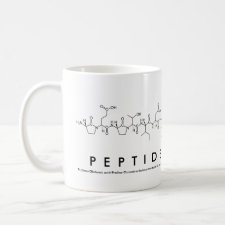
Authors: Kotrotsiou O, Chaitidou S, Kiparissides C
Article Title: On the synthesis of peptide imprinted polymers by a combined suspension--Epitope polymerization method.
Publication date: 2009
Journal: Materials Science and Engineering: B
Volume: 165
Issue: (3)
Page numbers: 256-260.
DOI: 10.1016/j.mseb.2009.05.006
Alternative URL: http://www.sciencedirect.com/science/article/B6TXF-4WCSXH5-1/2/0dc2492a06ec04365d32e38c598f55e0
Abstract: In the past, molecularly imprinted polymers (MIPs), prepared by free-radical bulk polymerization, have been used for the selective recognition of small biomolecules (i.e., amino acids and amino acid derivatives). Presently, there is a need for the synthesis of MIPs capable of recognizing larger biomolecules (i.e., peptides and proteins). Moreover, it is highly desirable the production of MIP microparticles with well-defined morphological characteristics (e.g., particle size distribution, porosity, etc.) via particulate polymerization techniques. In the present study, the synthesis of molecularly imprinted microparticles, produced via the suspension and inverse suspension polymerization methods, using the "epitope approach", is reported. The hydrophobic (i.e., Boc-Trp-Trp-Trp) or hydrophilic (i.e., His-Phe) oligo-peptides were employed as template molecules. The potential of the combined suspension polymerization method with the "epitope approach" for the production of MIP microparticles is demonstrated, as well as the specificity and selectivity characteristics of the MIP microparticles towards hydrophobic and hydrophilic oligo-peptides. The proposed method appears to be a very promising and efficient technique for separation of proteins
Template and target information: peptide, Boc-Trp-Trp-Trp, His-Phe, protein epitopes
Author keywords: molecular imprinting, peptides, suspension, Inverse suspension


Join the Society for Molecular Imprinting

New items RSS feed
Sign-up for e-mail updates:
Choose between receiving an occasional newsletter or more frequent e-mail alerts.
Click here to go to the sign-up page.
Is your name elemental or peptidic? Enter your name and find out by clicking either of the buttons below!
Other products you may like:
 MIPdatabase
MIPdatabase









